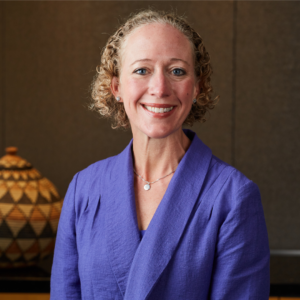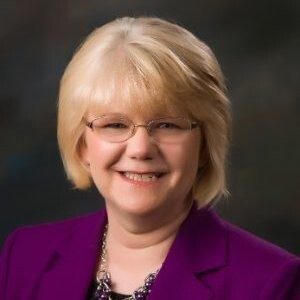Getting ready for survey the fun way
A new and fun way to prepare your associates for the annual state survey is to hold a “skills fair” in your facility. The fair can be for one or two days depending on how big an event you choose to have. Each department designs a booth and provides information about what it does, demonstrating the importance of teamwork to achieve success not only during survey but every day throughout the year. This event is a creative way to learn and it can be a lot of fun when it becomes competitive with prizes given for the best booths. It is also a time to provide the opportunity for departments to become familiar with the duties of other departments within the facility and to brush up on key skills and concepts that are checked during the state survey. “Having fun while learning to provide excellent resident care is a great way of getting everyone involved,” says Donna Adams, director of nursing at Life Care Center of Missionary Ridge in Chattanooga, Tennessee. “Skills Fair has a multigoal concept. It’s a fun and exciting way to increase employee morale, to provide required yearly in-services, maintain regulatory compliance, and increase knowledge.”
The best way to encourage each department’s “buy-in” is to have a theme for the Skills Fair so everyone can use their imagination to decorate, but still educate. The theme used at our facility was “Striving for Excellence.” This theme was chosen because it encouraged all the associates to achieve high standards in every aspect of their jobs. For instance, we decorated the facility in red, white, and blue. Each department then came up with some great ideas for their booths using the theme and the overall color scheme.
The dietary department, in particular, did a fabulous job with their booth. Tables displayed each type of menu—from a diabetic to puréed diet. Their table decorations included a beautiful, sweet-smelling flower arrangement. At the end of the event, a drawing was held and the winner took home the arrangement. “This was a good time for me to let everyone sample each type of diet that our residents have according to their diet plan,” said Gary Williams, dietary manager. “It was also a good way to show how the table can be set up to enhance one’s appetite.” You would think the puréed plates wouldn’t be eaten, but the way they were displayed made them a winner. Everyone was amazed after they were told what plates they had. “Everything looked and tasted so good,” according to one of our guests.
For the activity booth, we set up a spa, complete with a massage chair placed in a sandbox; sounds of the ocean playing in the background; and red, white, and blue stars hanging from the ceiling. Everyone could sit and receive a massage, place their feet in the sand, and relax while they were in-serviced on what activities was all about. To help illustrate activities, the daily charting booklet, a one-to-one (1:1) booklet, a leveling booklet, newsletters, and calendars were available for viewing. The leveling booklet was the most asked about. It explains how the residents are placed in groups. There are four resident levels: alert, low functioning, daily routines, and in-room one to ones. This system is based on how many activities each resident attends. For example, the alert resident may attend and participate in six to seven activities a day, while those who are low functioning will attend and participate in four to five activities a day. The next level, daily routines, involves residents who do their own routines and may also like to volunteer to help with passing the mail, help during activity groups, or announcing daily activities. The 1:1 residents receive in-room activities. Each level has a checklist that tracks what each resident has done during the day and allows them to stay in that level or to move to another level.
The therapy department decided not to decorate a booth, but to show more physical ways of how their department operated. They demonstrated the proper way of lifting residents and how important this technique is to prevent injuries. They also had a lift and associates were invited to sit in the lift as the therapy staff raised and lowered them into a bed. In another area, there was an exercise program that showed how to get in shape and keep muscles toned. Associates could exercise at a slow pace or do some exercises that would accelerate their heart rate. Healthy, but easy to prepare recipes were passed out.
Other booths throughout the facility contained information on fire policy, infection control, and hand-washing procedures. In addition, local organizations and businesses, such as the Alzheimer’s Association, hospice, home health, and food vendors were invited to set up booths. The Alzheimer’s Association did a small version of its Virtual Reality Course, which consisted of placing an associate in a wheelchair, putting marshmallows in his or her mouth, corn in the shoes, and rubbing petroleum jelly on eyeglass lenses to make seeing difficult. Then the person was given five tasks to do in 10 minutes. This was an eye-opening experience that left everyone talking.
Residents also participated by setting up a Resident Council booth to show how the council speaks on behalf of the residents to bring concerns and issues before the administration. It was surprising to see how much and how well your residents enjoy sitting and talking to everyone who attended their booth.
In addition to the associates attending the two-day event, the community was invited to the Skills Fair as an opportunity to share information about the facility’s staff and services. The local city councils were invited to judge the best booths and helped award prizes. Schools and churches were invited to see how they could become part of a volunteer program and learn what is needed to become a volunteer. This was the first time some of the school kids had ever been in a nursing facility. With everything looking so beautiful and informative, they hardly knew they were in an “old folks’ home.” Some of them even expressed a desire in becoming nurses.
Each table had a sign-in sheet so the associates could indicate they had received training about our specific departments. Each associate who completed training and attended all of the booths received a certificate.
Everyone had a great time and learned a lot more because of all the hands-on participation. This two-day event was filled with lots of fun and good information. “We were delighted at the resounding success of our Skills Fair,” says Harold Wetherbee, executive director. “Everyone did a great job in bringing the real reason of the fair, which was to ensure quality of care for our residents.”
Start planning now at your facility to have a Skills Fair. It will be something that you will want to do year after year. Each year you can add more and more to it as we plan to do this year. I’ve explained some of our ideas. See what you can come up with and go for it. You will be surprised at the participation and the excitement it generates. In turn, your staff will be working together for one cause—“Striving for Excellence” for the elderly they care for. n
Mae Petty, ADC, NAAP Treasurer, is Activity Director at Life Care Center of Missionary Ridge in Chattanooga, Tenn., and is NCCAP Certified. She has served on numerous local, state, and national committees concerning activity professionals and those working with Alzheimer’s patients. Among her many state and national awards is being voted Tennessee Activity Professional of the Year.
To send your comments to the author and editors, e-mail petty0608@iadvanceseniorcare.com.
I Advance Senior Care is the industry-leading source for practical, in-depth, business-building, and resident care information for owners, executives, administrators, and directors of nursing at assisted living communities, skilled nursing facilities, post-acute facilities, and continuing care retirement communities. The I Advance Senior Care editorial team and industry experts provide market analysis, strategic direction, policy commentary, clinical best-practices, business management, and technology breakthroughs.
I Advance Senior Care is part of the Institute for the Advancement of Senior Care and published by Plain-English Health Care.
Related Articles
Topics: Articles , Regulatory Compliance











